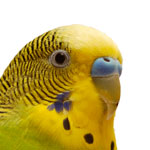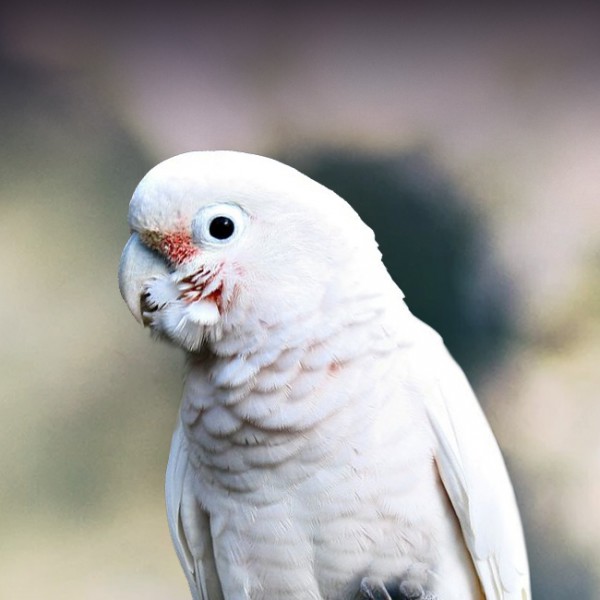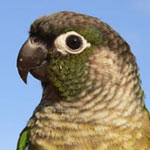I like when I can give short answers! Evidence for my answers mostly come from my previous articles, but I have some new references.
Lets start with this one. I know some bird owners that are bold enough to ignore their vets and bird forums and feed their birds eggs. However, they typically protect their birds from yolks and only feed whites. So, lets look at the similarities and differences.
As I mentioned in Sources of Vitamin D, there just arent that many that birds actually want to eat. Egg yolks are one of them and egg whites have no Vitamin D. This is such a critical vitamin for birds that egg yolks need to be considered as a source.
I like to repeat this message that we and our birds have nothing to fear from fat and cholesterol. Ive made a few converts but it never hurts to try to educate people on how to feed their birds. And not to fear real food.
Ive written many articles on this subject so its easiest just to quote them. Note, too, that eggs have zero carbohydrates, which makes them an even better food choice.
Although I dont hear it often, some complain about the protein content of eggs, which is about 37% of the nutritional content. Note, however, that both the egg yolk and white have the same protein content.
I guess a reasonable takeaway is that if no one is warning people about egg whites and their birds, the same should apply to egg yolks.
Dont worry about giving your birds eggs. Ignore your vet who was likely educated in an era when far less was known about nutrition that cutting-edge research is proving today. No offense! You teach what you learn.
Egg whites are of virtually no value to a human or a bird, except perhaps foraging value. However, a yolk has foraging value and an unbelievable amount of nutrition that is exactly what a bird needs.
As an aside, Ive nursed several birds back from the brink of death, who would not eat ANYTHING I gave them. But they would eat eggs! And that got them on the road to recovery.
Feeding eggs to parrots.
I discovered that BRENDA, the user of the website, had approved of giving parrots eggs to eat. Now, to my knowledge that is dangerous. Because parrots that were frequently fed eggs died of strokes, veterinarians are no longer recommending eggs. My present avian vet, Dr. Paul Welch provided a description of the necropsy that was done on an African grey The bird died of a stroke. He claimed that the arteries were “as stiff as sticks” due to the amount of plaque in them. He asked the owner about the diet. She fed eggs weekly. He stated that was the problem. Neither in the wild do parrots eat eggs, nor are they made to do so. This is only ONE instance of a parrot that perished after consuming eggs. others have been reported. It’s possible that not many people are aware of this, but I don’t think LaFeber should be encouraging people to feed eggs to parrots. For nearly 40 years, we have worked with numerous parrots at our spacious facility, consistently collaborating with renowned avian veterinarians such as Dr. Brian Speer and none have recommended feeding eggs to parrots.
We always welcome inquiries to provide clarification on anything that was posted in response to another user. However, please exercise caution when adding your own words or taking something out of context, as doing so may fundamentally alter the advice that was initially provided. When asked about providing eggs to a pet bird, I will discuss the health risks and advise against doing so on a regular basis because doing so hardly qualifies as endorsing or advocating the feeding of eggs.
Dr. According to Susan Orosz, parrots’ innate ability to fly means that they should consume a diet high in fat and protein. Therefore, you get plaque if you discontinue long, intense exercise sessions from the program. Offering eggs in small amounts no more than twice a week, if fed a nutritionally balanced diet as outlined below and exercised daily, preferably with flight activities, won’t be a health concern.
Offering eggs to parrots is something I only really advise doing when they are a breeding pair. I suggest consuming a well-balanced diet consisting of dark leafy greens, chopped vegetables, fruit, and pellets or our foraging diets. The pair can be offered egg food, such as commercial dry egg food or cooked eggs with the shell washed, crushed, and cooked with the eggs, once they have begun mating and been given their nest box. This can be provided up until the chicks are taken out of the cage or are weaned. After that, the nest box should be taken down, the egg food should be stopped, and the couple should take a minimum of six months off before being permitted to breed once more. Although they are able to reproduce all year round, parrots in the wild only have one breeding season and are not meant to breed continuously. They don’t receive the environmental cues that indicate the end of the breeding season in the wild, so they can only do this in captivity due to the conditions we provide.
As for offering the eggs, there is a lot of debate about offering eggs and many other foods due to the risk of atherosclerosis. As for eggs, this is solely based on their cholesterol content. Yet studies have now shown that the cholesterol in eggs does not raise cholesterol levels in humans as it was once reported to. To date there have not been any studies on the effect of parrots being fed eggs, so to say eggs cause atherosclerosis is pure speculation. There is one study that was done on chickens where they were offered powdered or raw eggs, and those fed raw eggs did have more plaques than those fed powdered, but again, the results are not conclusive and may or may not apply to a parrots very different digestive system. Dr. Stephanie Lamb, who is Board Certified in Avians and the incoming AAV president, talks about this study in one of her webinars on Cardiovascular disease, which can be viewed on our YouTube channel.
Even though avian medicine has made advancements in the diagnosis of atherosclerosis more common, the disease still lacks a single cause, and eggs by themselves are unlikely to cause it unless they make up a significant portion of a bird’s diet. There were probably a number of contributing factors, including genetics, in the case of the one-year-old African Grey that died from this disease. It is well known that greyhounds are more prone to contract this illness, but the reason could just be that because they are so well-liked, more veterinarians see them. Any parrot that passes away in its first year of life from a progressive illness that is typically observed in an older bird is most likely the result of a genetic problem, which is frequently brought on by inbreeding or generally inferior genes. It is extremely unlikely that a young bird fed eggs once a week for a year will result in such advanced atherosclerosis in an otherwise healthy bird in the absence of many other contributing factors.
There’s no evidence to suggest that parrots aren’t meant to eat eggs and that they don’t in the wild. It is common knowledge that parrots kept in captivity will eat their own eggs, and if they are kept in a flock, they will also raid each other’s nests and eat the eggs of competing pairs. It is well known that many bird species consume their own or other species’ eggs when they are in the wild. Given the prevalence of captive parrot species’ egg-eating behavior, it’s likely that wild parrots follow suit.
Although anecdotal evidence may eventually result in a scientific investigation that confirms or refutes it, we must exercise caution when disseminating unsupported claims. For instance, a lot of Greys appear to require more calcium than other species, but this could also be because there are so many of them kept as pets. Therefore, it would be reckless to claim that greys require higher calcium than other birds, and it might even be dangerous if a pet owner gave their bird a calcium supplement without first contacting a veterinarian. Rather, it should be said that because greys may require more calcium, frequent veterinary exams are advised to ascertain whether a supplement is necessary.
Because there are plenty of other nutrient-dense foods available and because there may be legitimate health concerns, I personally do not advise giving eggs to parrots in general, let alone on a daily basis. However, I do not believe that providing them to breeding birds on a limited basis and for a short period of time poses a serious health risk, and I do think that the advantages to the parents and chicks outweigh any potential risks. This has been done for decades, and a lot more birds would be dying if the infrequent feeding of eggs alone is what’s likely to cause advanced atherosclerosis. The truth is that there is still much to learn about the illness, and numerous contributing factors are being investigated rather than a single cause being suspected. Research on imaging is still being conducted by Dr. In the long run, Scott Echols will become a routine in identifying this illness at a significantly earlier stage, which could result in a successful course of treatment. Research conducted on parrots afflicted with this illness will ultimately reveal its causes, which will improve prevention.
These days, the majority of veterinarians advise their clients not to give eggs or many other foods out of caution. And once more, this is the counsel I offer regarding a pet bird. However, I will not attempt to support it by presenting current conjecture as fact; instead, I will outline the issues and the dearth of scientific research at this time. As we continue to learn more about parrots, recommendations will inevitably change. However, it’s critical to be open and honest so that the owner will recognize and respect the fact that the initial advice was provided with a disclaimer that it was based on conjecture rather than solid scientific evidence in the event that something comes to light that contradicts it.
We do provide free weekly webinars with Board Certified Avian presenters. You can watch all of our previous webinars on our YouTube channel, and they cover a variety of topics related to pet birds as well as many of the most recent discoveries in avian medicine.
Thank you for asking Lafeber,
Brenda Have a question?
- Question Title*
- Question*
- Your Name*
- Email*
- Email: This field should remain unchanged as it is only used for validation.
Questions by category










As I mentioned in Sources of Vitamin D, there just arent that many that birds actually want to eat. Egg yolks are one of them and egg whites have no Vitamin D. This is such a critical vitamin for birds that egg yolks need to be considered as a source.
I like to emphasize that fat and cholesterol pose no threat to humans or our birds. Though it never hurts to try to teach people how to feed their birds, I’ve converted a few people. And not to fear real food.
Ive written many articles on this subject so its easiest just to quote them. Note, too, that eggs have zero carbohydrates, which makes them an even better food choice.
A fair conclusion, I suppose, would be that, just as no one alerts people to the dangers of egg whites and their birds, then egg yolks should also be safe.
Although I dont hear it often, some complain about the protein content of eggs, which is about 37% of the nutritional content. Note, however, that both the egg yolk and white have the same protein content.
FAQ
Are egg shells good for wild birds?
How do you feed egg food to birds?
Is boiled egg yolk good for birds?